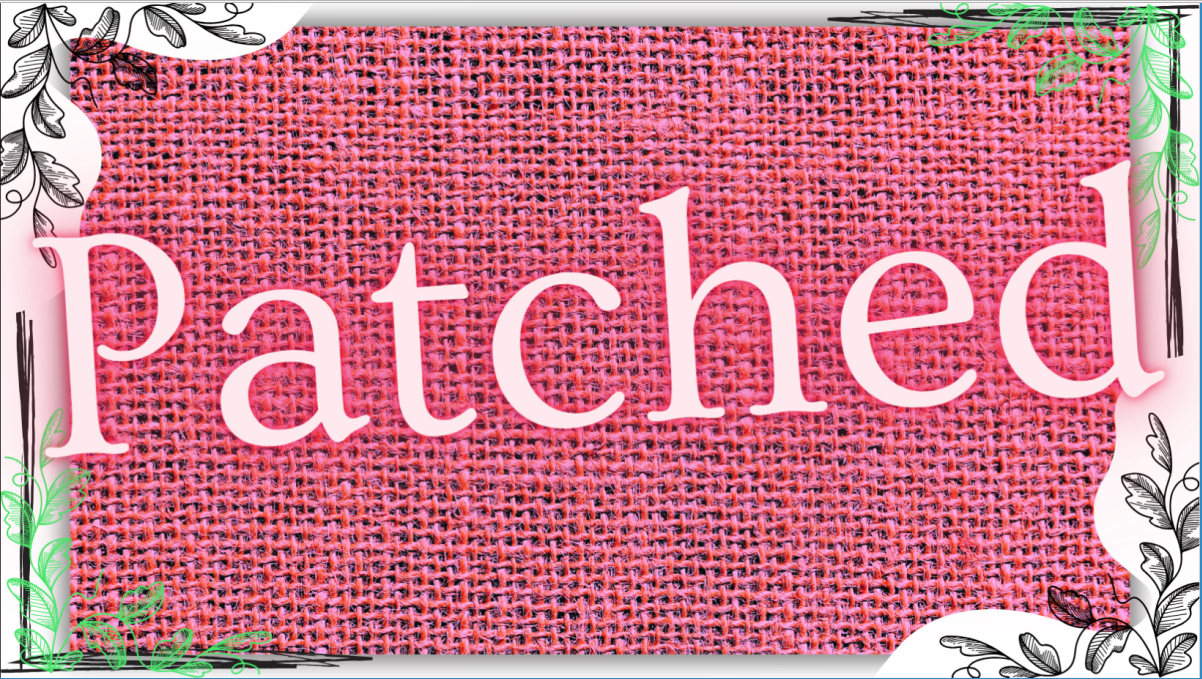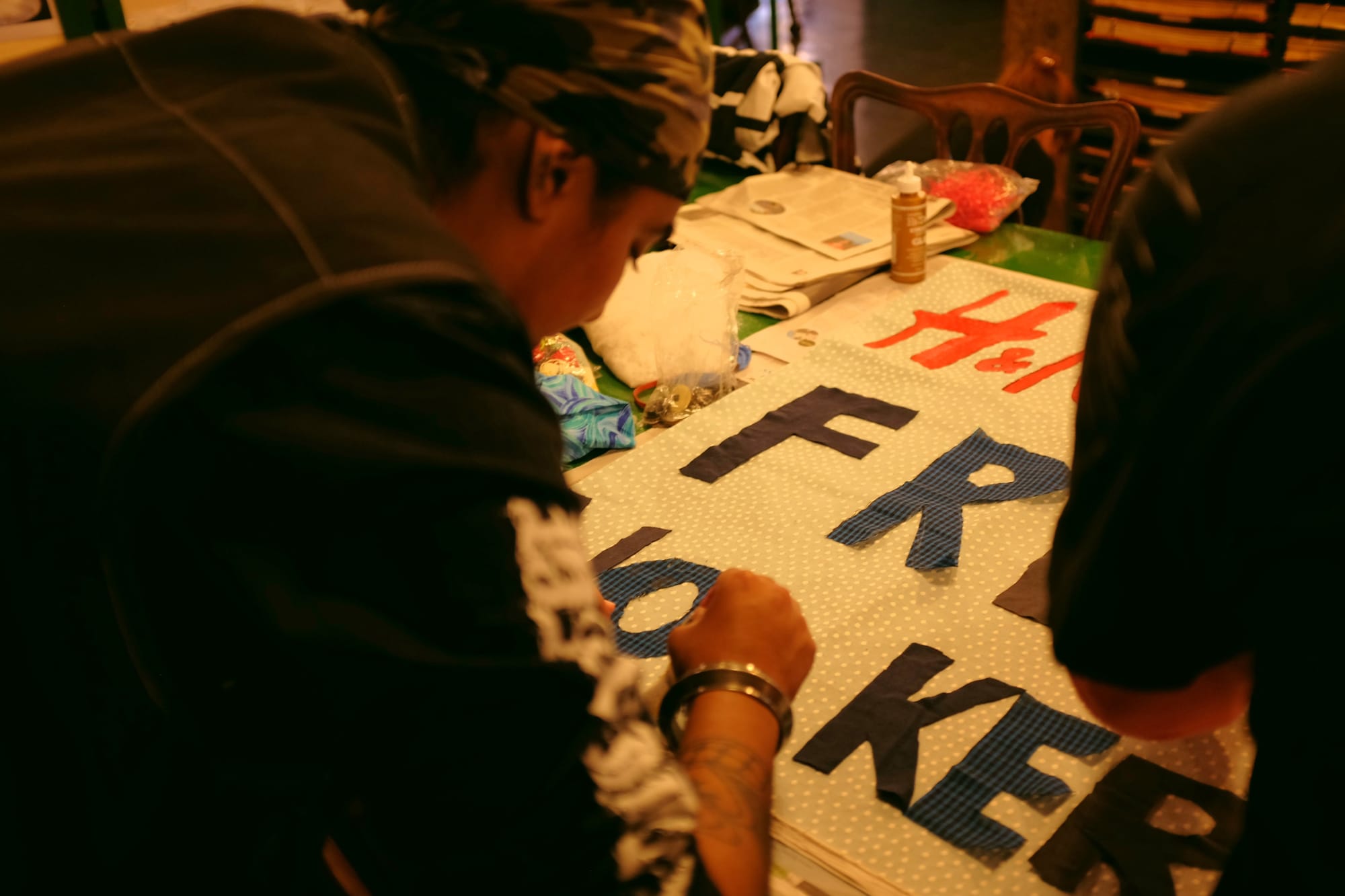Wages Not Warrants
Protest photos, remembering Rana Plaza and resisting the crackdown in Bangladesh.
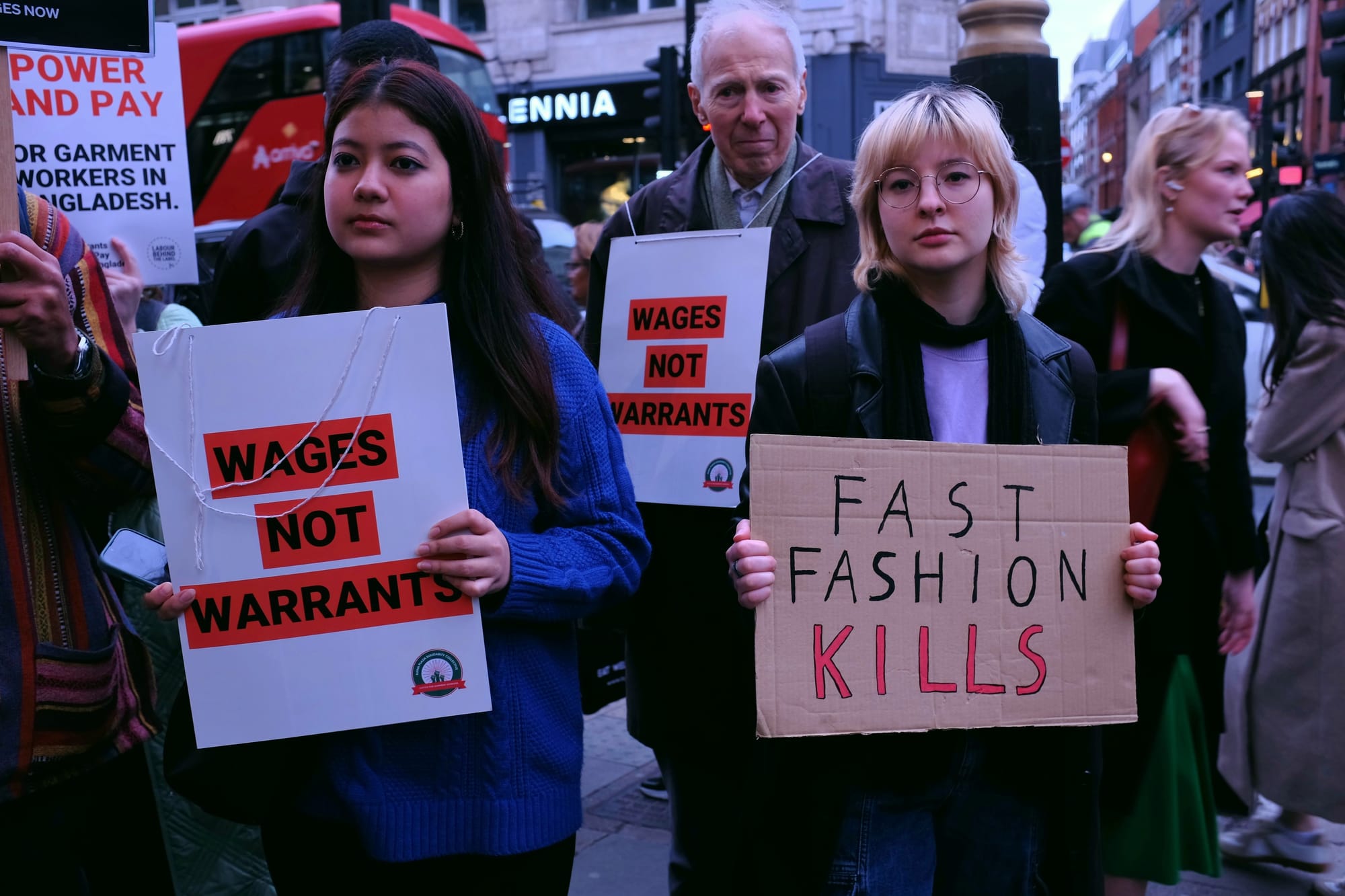
When Bangladesh's Minimum Wage Board met in November 2023 to decide wages for garment workers, trade unions called for a monthly Living Wage of 23,000 taka (approx £172), given that the previous wage of 8,000 taka (£60) was a poverty wage that made fruit a luxury item.
Protests erupted when the Board announced a new wage of just 12,500 taka (£90). The state cracked down on the protests – killing four workers and arresting thousands more including trade union organisers. This despite the fact that Bangladesh is utterly dependent upon its garment workers - 84 per cent of everything Bangladesh exports is garments made by these workers.
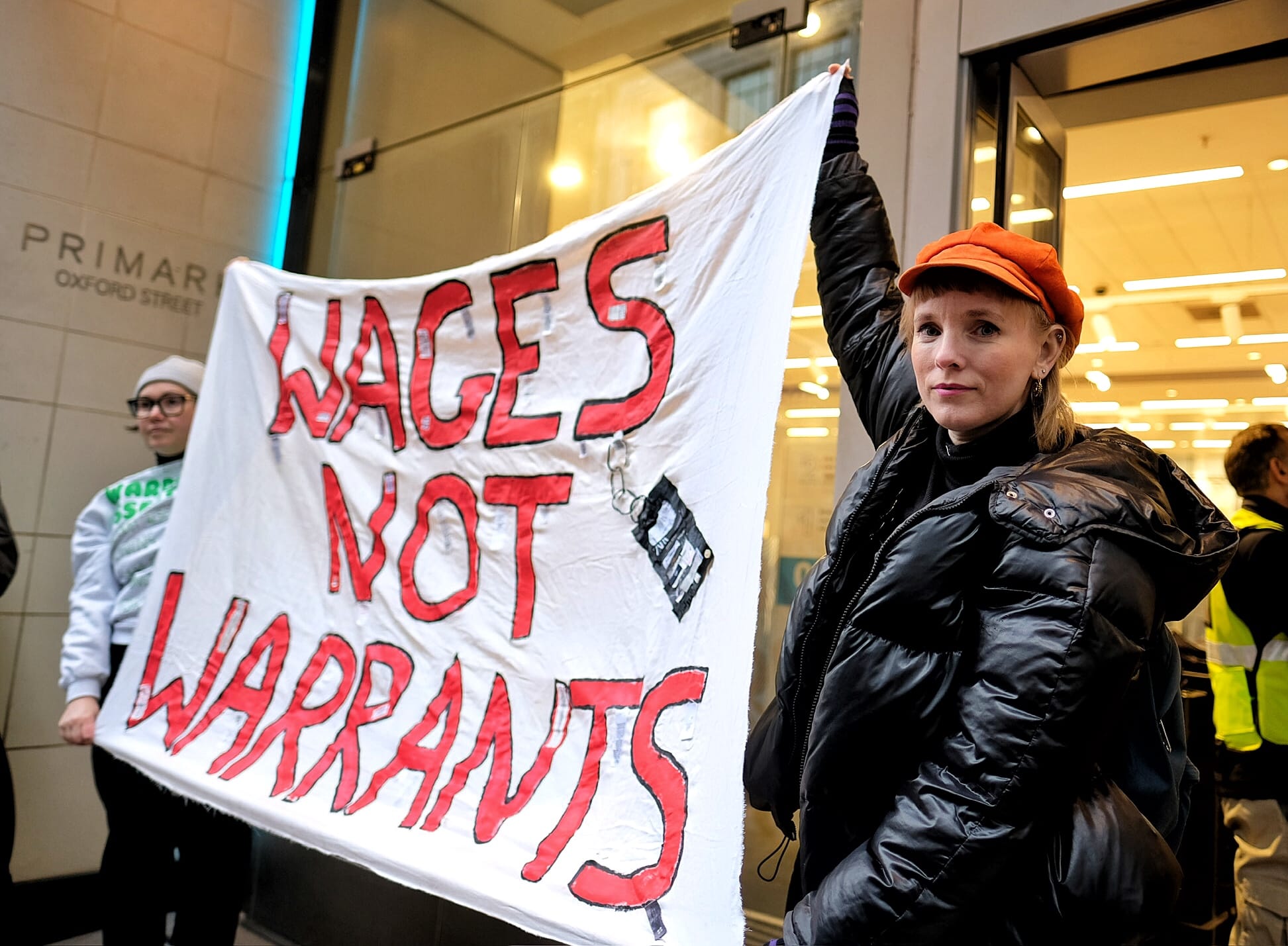
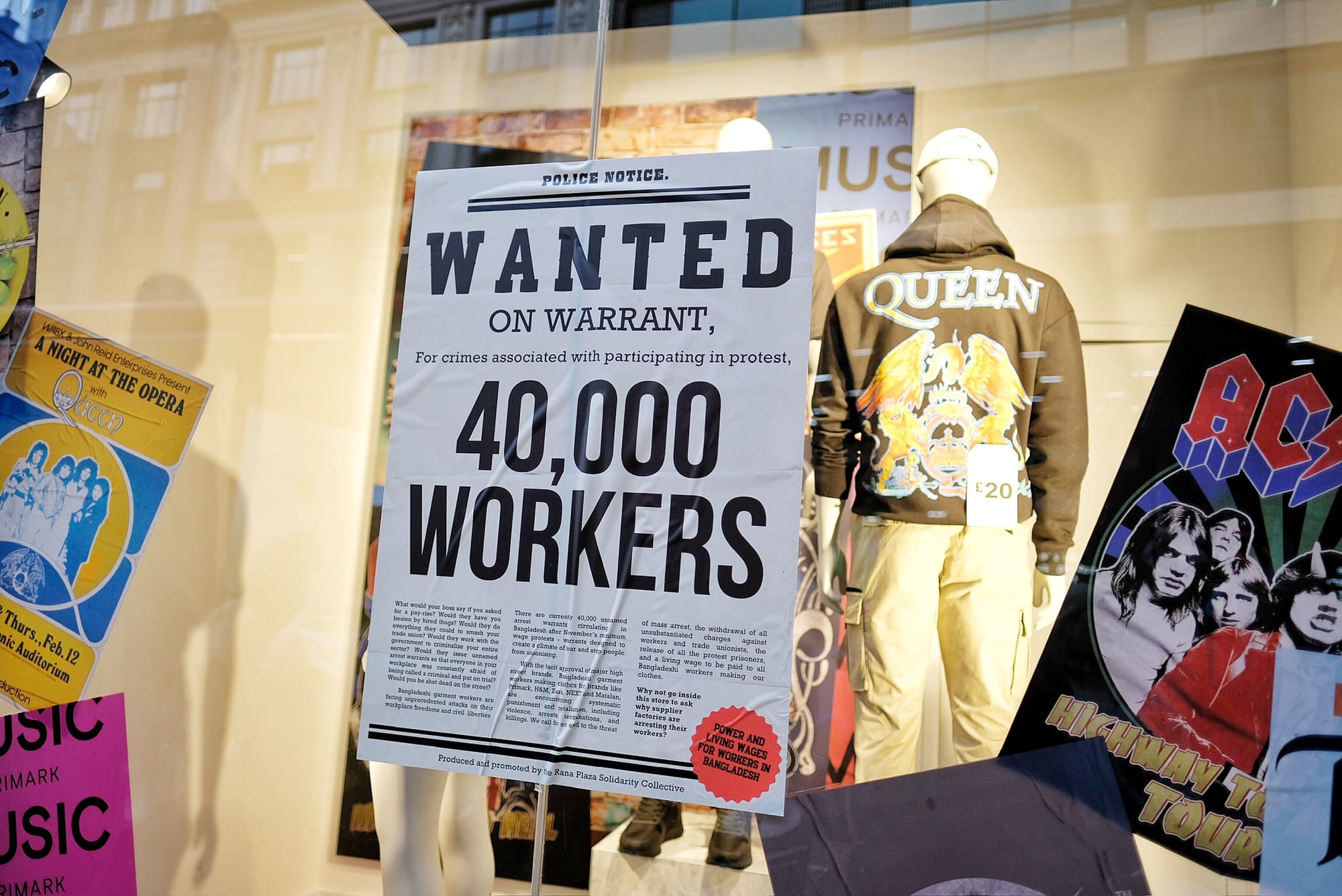
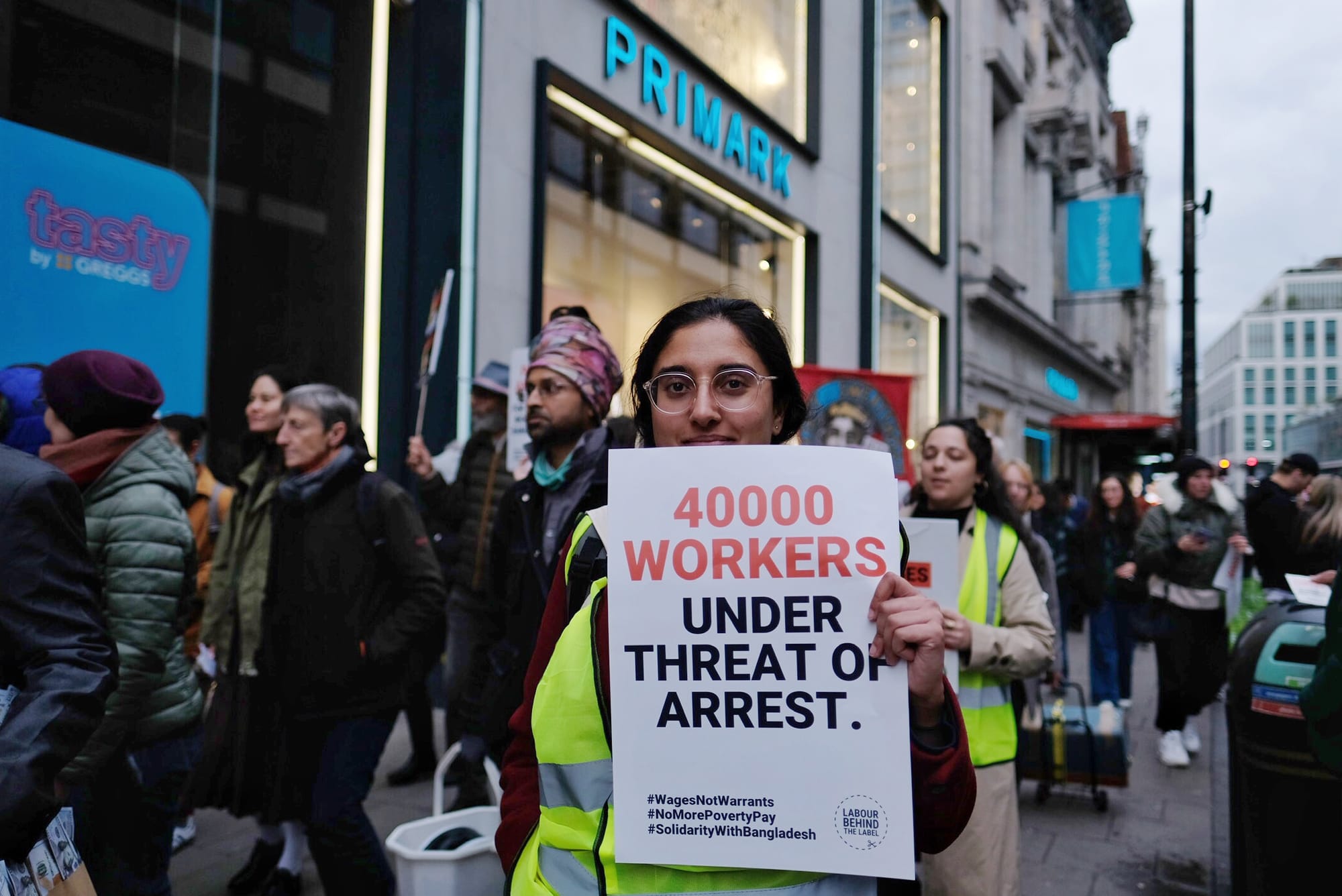
Angela Christofilou aka @protests_photos
The new poverty wage was good news for factory owners who have their sights set on a $100 billion industry – to be built off the backs of garment workers who can't afford sufficient food. Bangladesh’s factory owners are part of a powerful ruling class with business interests mixed in with politicians and military figures. Moments like this demonstrate that history is not a linear march towards progress; rather, it is a struggle between two sides – in this case Bangladeshi workers vs. factory owners supported by the global ruling class. Gains for one represent losses for the other.
The power behind the throne
But there's an additional group making the most from this violence and poverty wages: the Brands. They have sat by and watched people die because every taka more for workers means less dividends for shareholders, fewer holidays on super-yachts and half an acre less in their luxury compounds in the Maldives.
This is why yesterday, for the eleventh anniversary of Rana Plaza we held a minutes silence to commemorate the 1,138 people who died in the factory collapse, and then we went to Primark, Zara, NEXT and H&M on Oxford Street – to bring into focus the billionaire tyrants who are watching over this repression in Bangladesh and reaping the rewards.
Since the protests, garment workers are facing unprecedented attacks on their workplace freedoms and civil liberties, as the government tries to strangle trade unionism. There are currently 44,000 unnamed arrest warrants circulating in Bangladesh after November’s minimum wage protests – these warrants have been designed to create a climate of fear and stop people from unionising. Anyone’s name can be added to a warrant at any time. Added to this, Bangladeshi garment workers are encountering systematic punishment and retaliation, including violence, arrests, terminations, and killings.
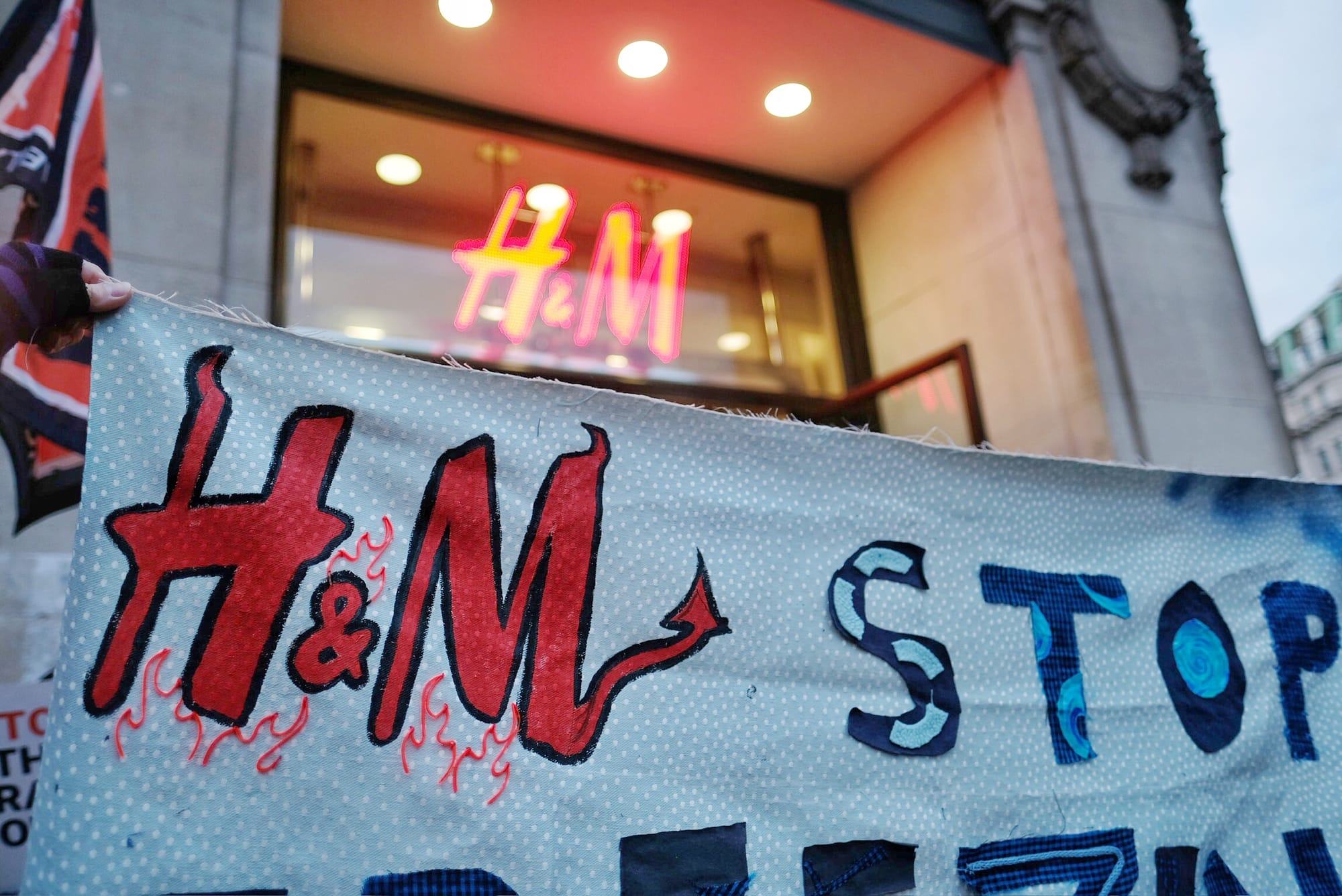
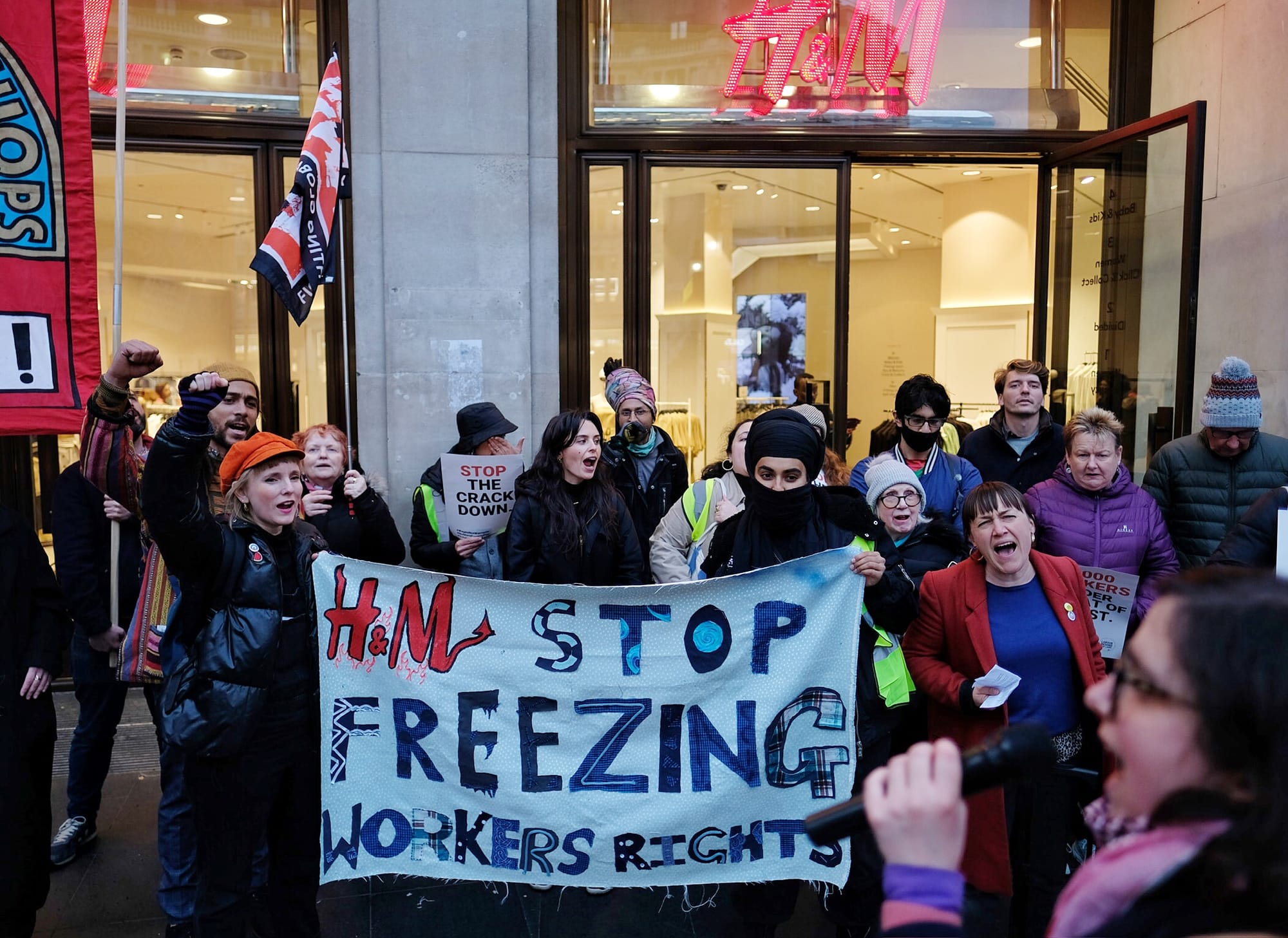
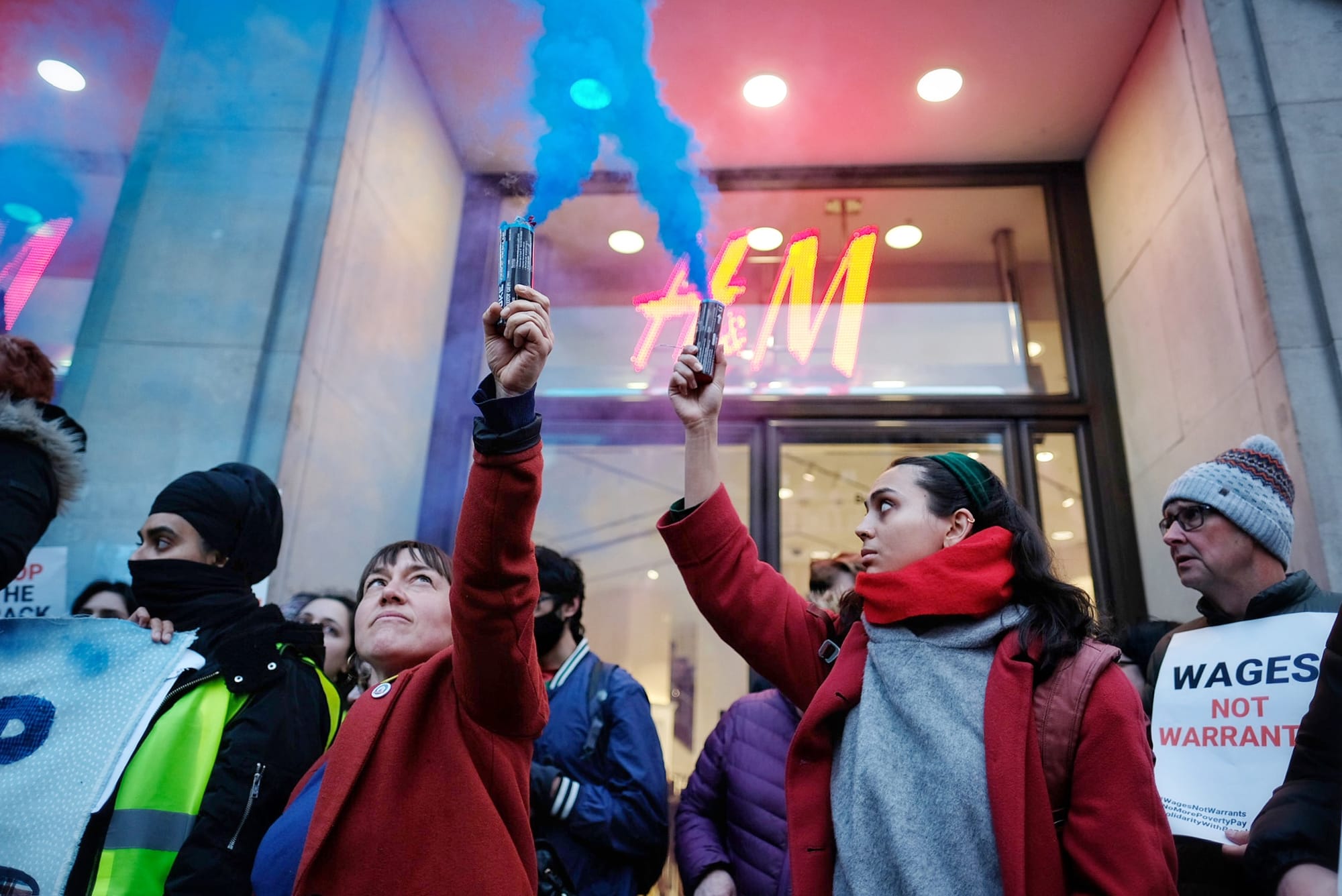
Angela Christofilou aka @protests_photos
What is being stolen
Threats to trade unions are a threat to social progress throughout Bangladesh. Think of the union fights here in the UK – the work it took to pass the Factory Act which stopped children under the age of nine being employed by textile factories, the Suffragettes who fought for votes for all women, the essential anti-racism strikes of the Bristol Bus Boycott, the feminism of the ‘Made In Dagenham’ strikes and the Grunwick dispute which encompassed both feminism and anti-racism. The unions who fought for an NHS, for public holidays, maternity leave and pensions, and so many, many more (– with much more left to do of course).
These were the fights of the UK and while Bangladesh has it’s own fights – it is critical that the ability to fight for social change is not stolen from the women and workers of Bangladesh.
This is the additional guilt of the big fashion brands. They have women stitch ‘feminist’ and ‘empowerment’ t-shirts while robbing these same women of the chance for change.
Because of this it is more important than ever that everyone who cares about freedom and civil liberties stands with unions in Bangladesh and demands an end to the threat of mass arrest, the withdrawal of all unsubstantiated charges against workers and trade unionists, the release of all the protest prisoners, and a proper wage of 23,000 taka.
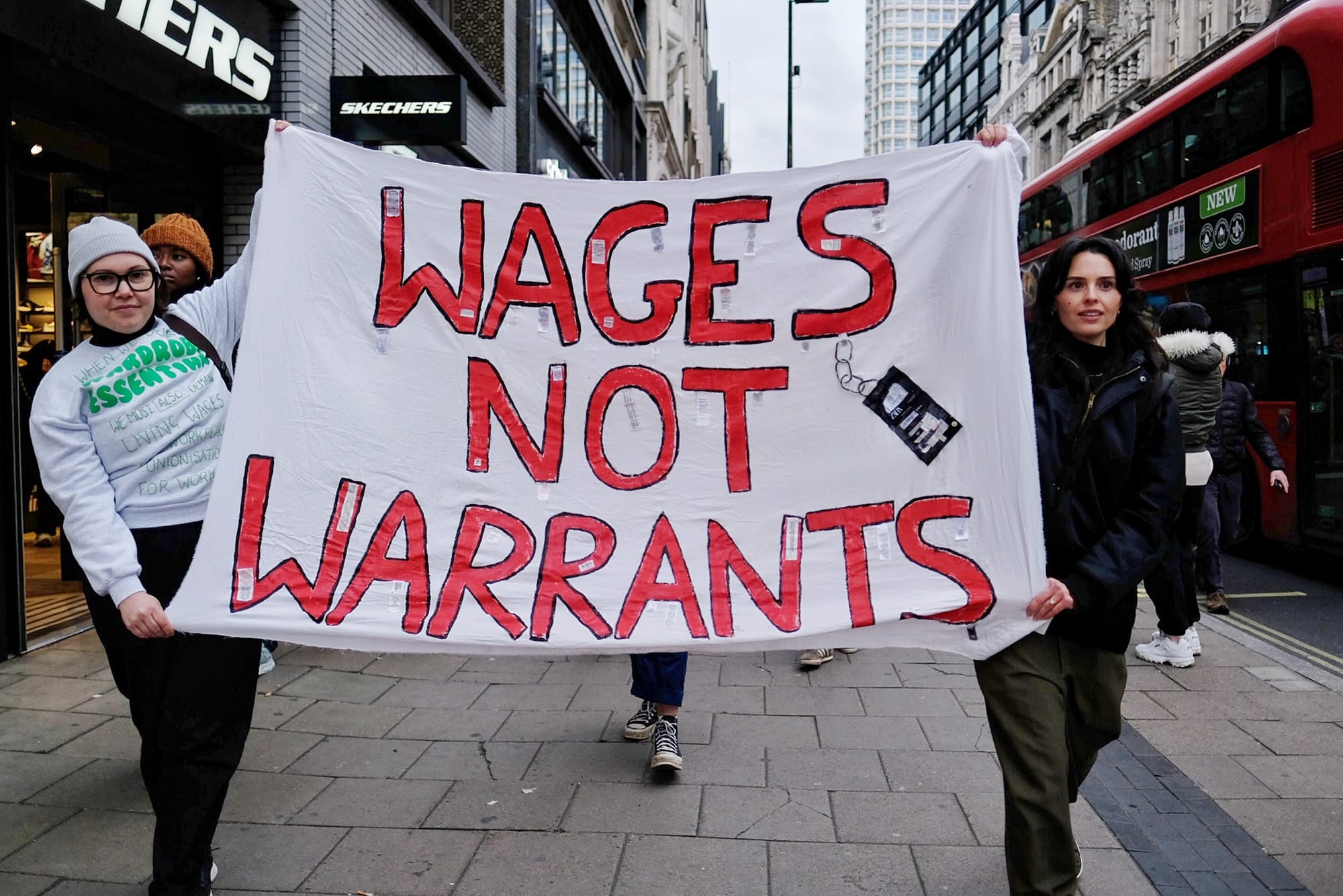
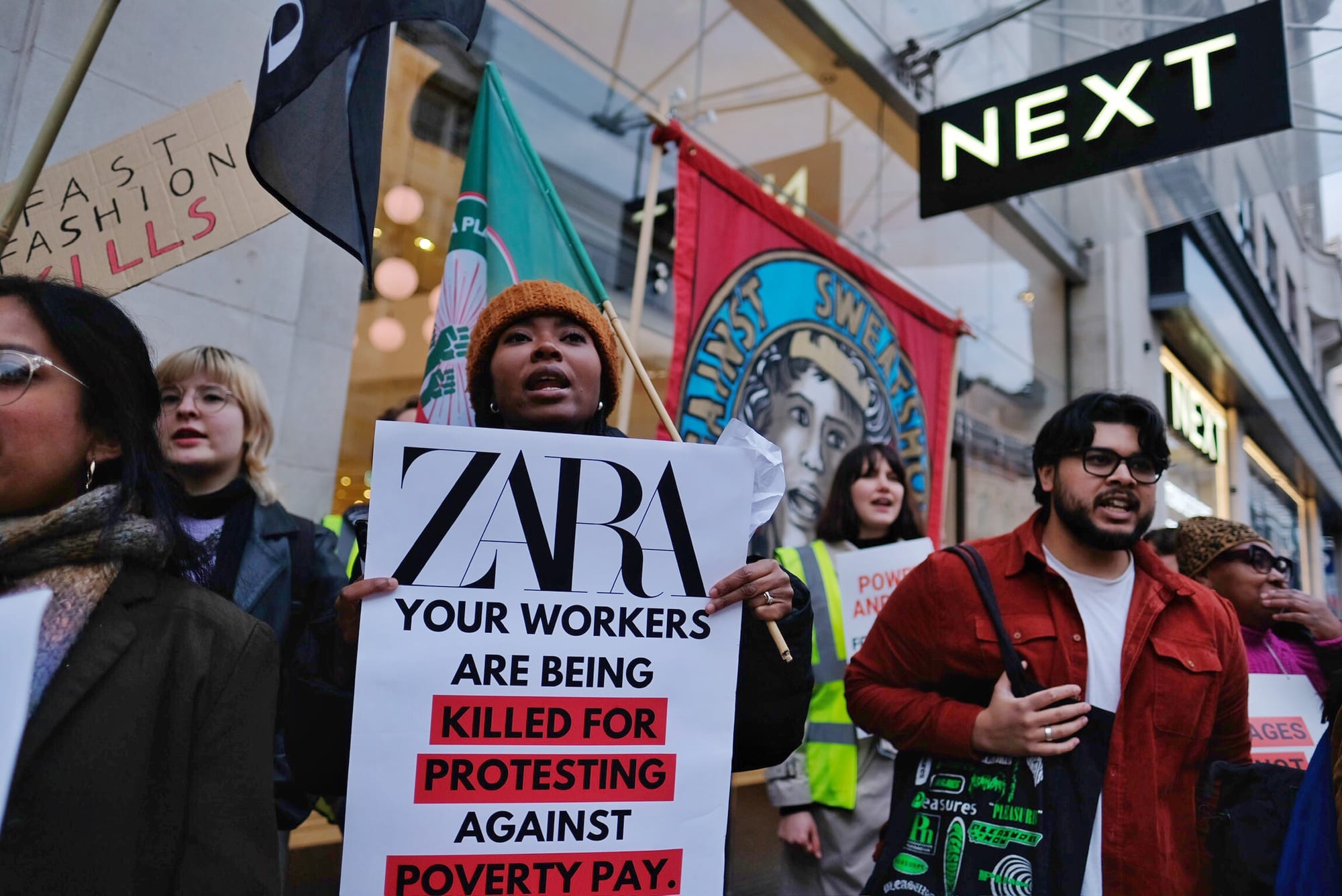
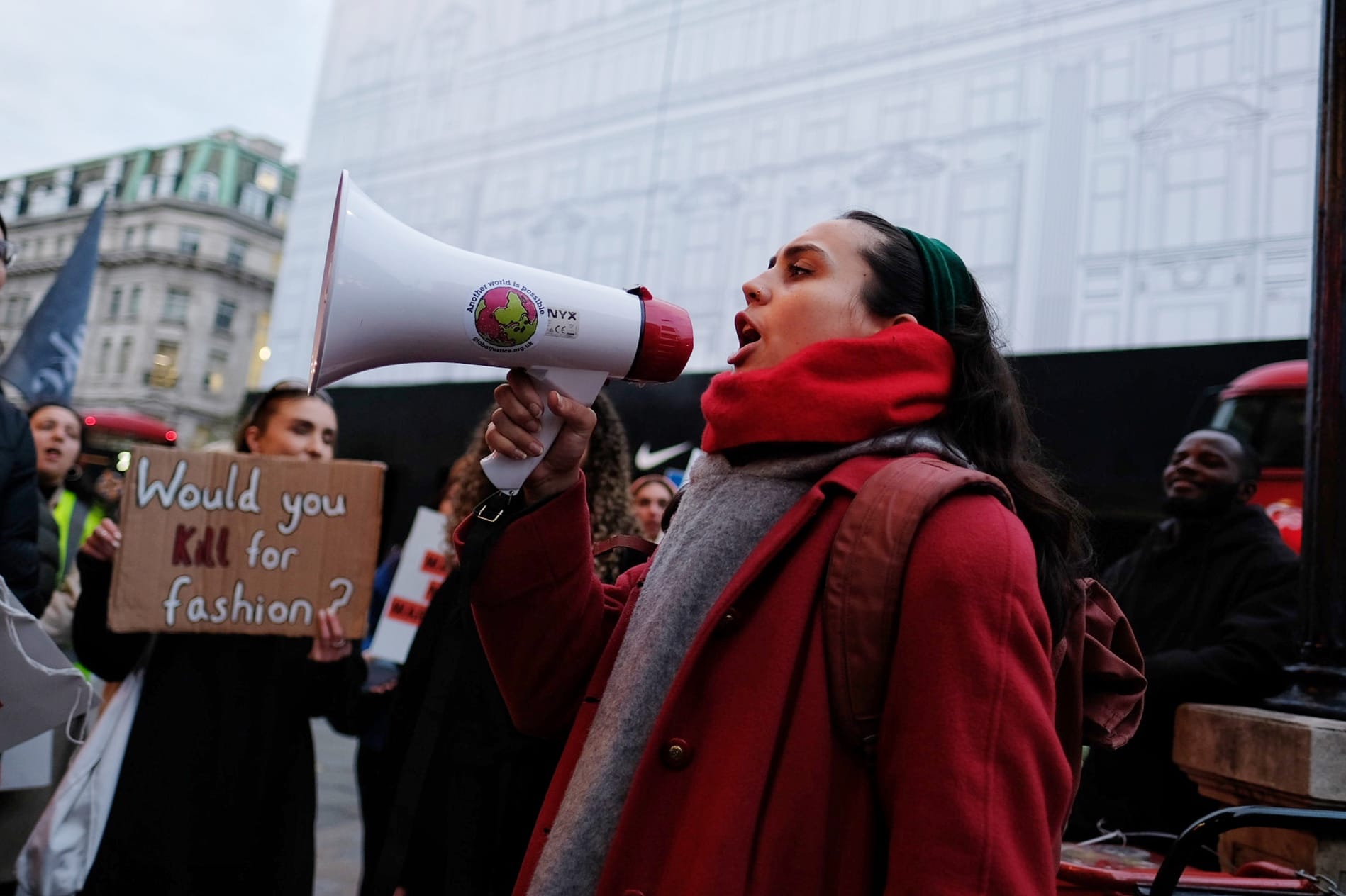
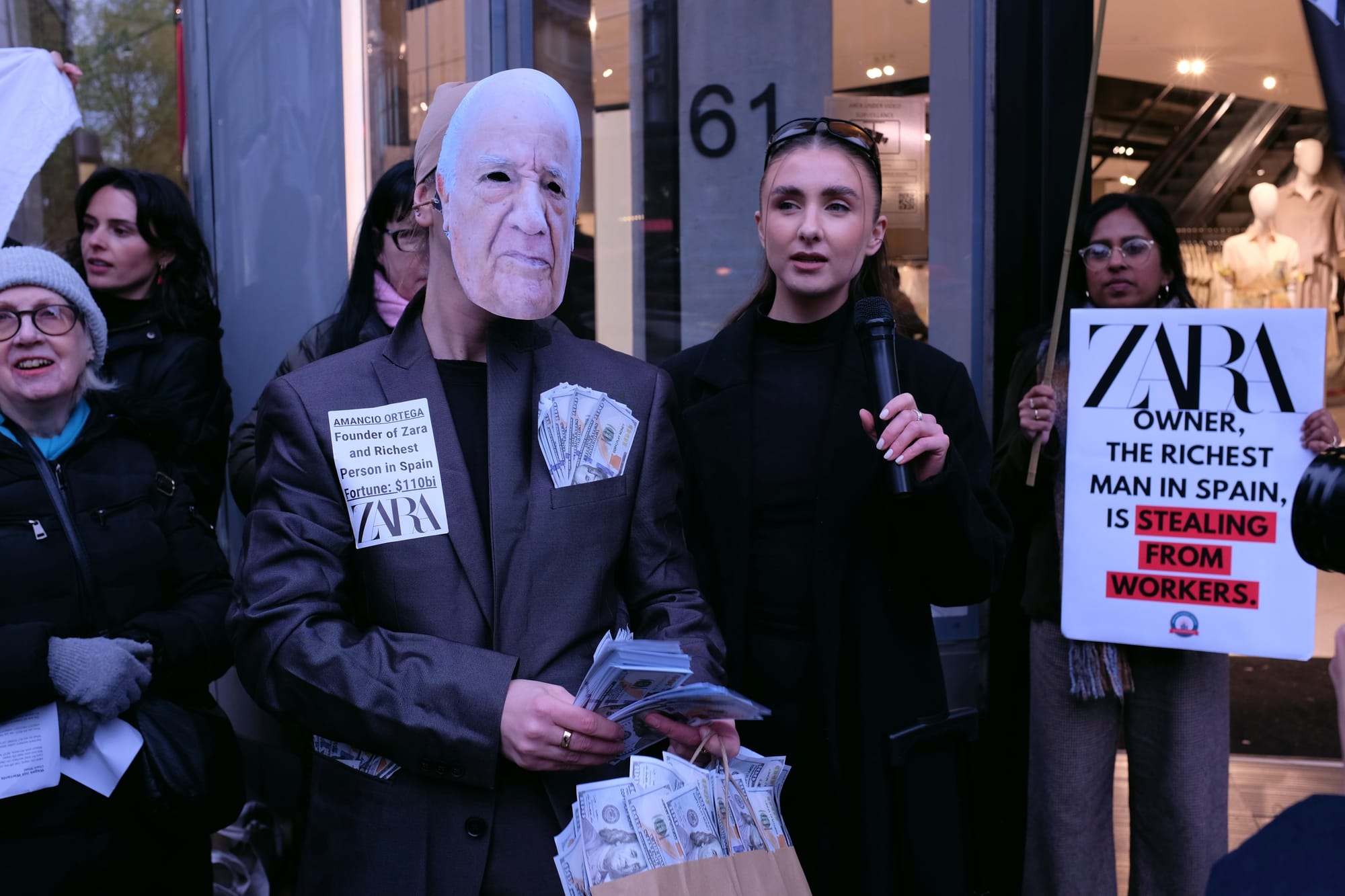
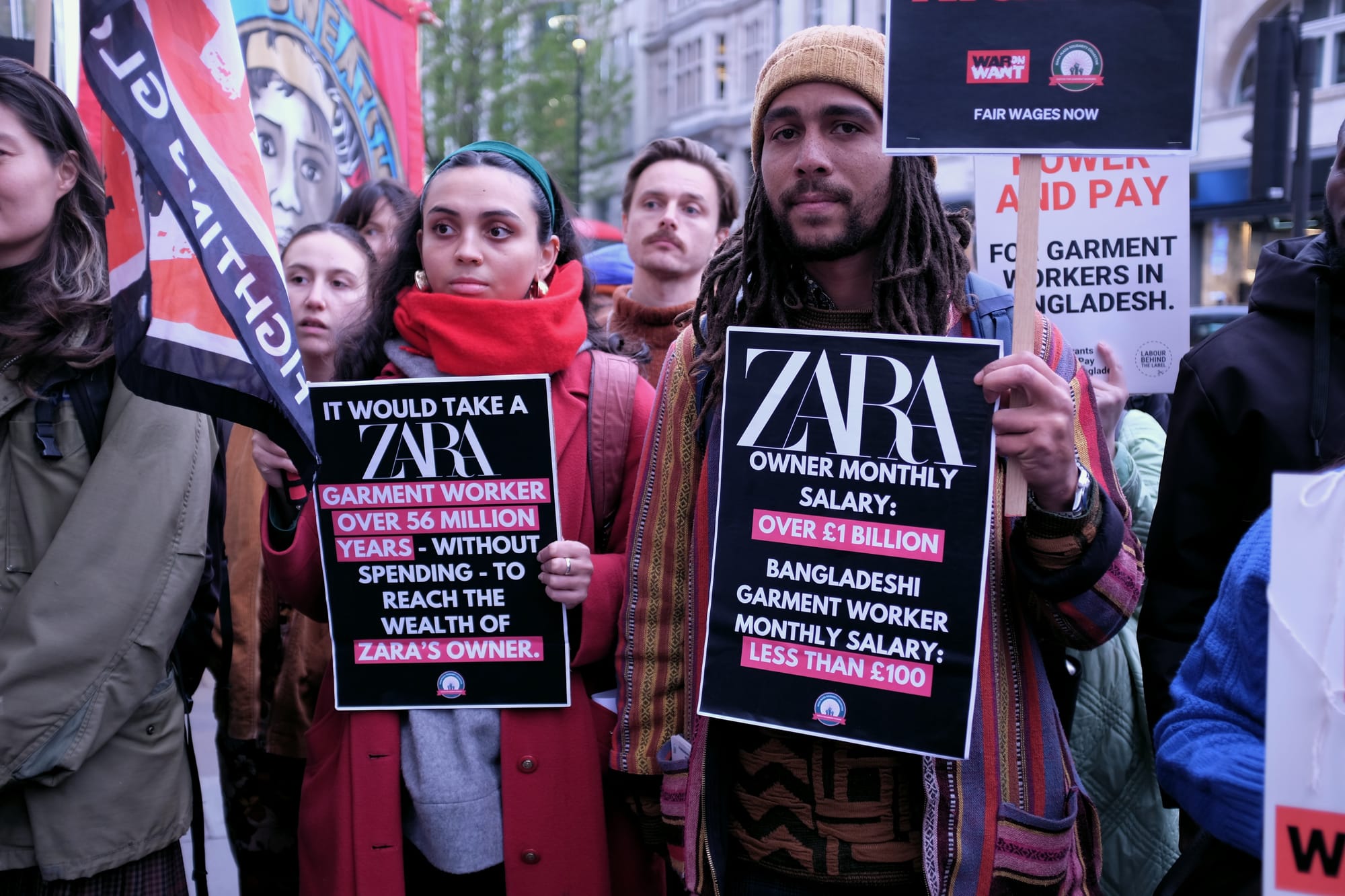
Angela Christofilou aka @protests_photos / Tansy Hoskins. Want to see the full album of protest photos? Click here.
